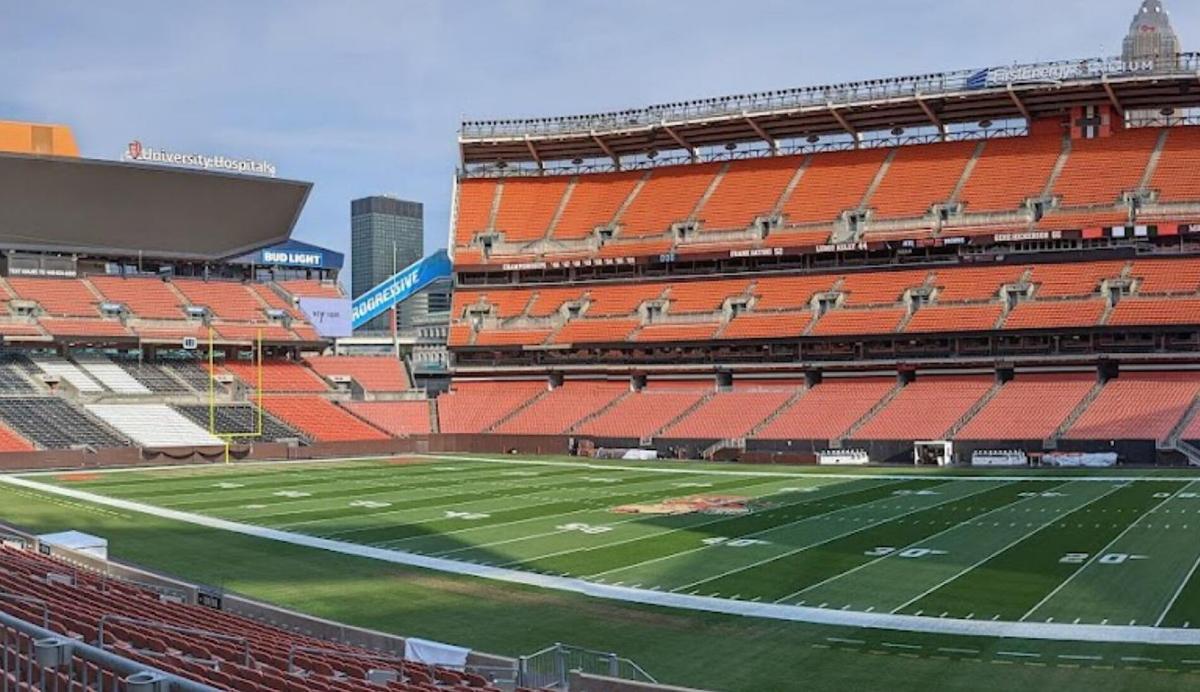By Aaron Knapp, Staff Reporter
COLUMBUS, OH – The Ohio House of Representatives has released its initial version of the state budget, and it includes a significant allocation of $600 million in state-backed bonds to aid the Cleveland Browns in the construction of a new domed stadium and entertainment complex in the suburb of Brook Park. This move, unveiled by House GOP leadership this week, has ignited a flurry of discussion and debate across the state, with proponents emphasizing potential economic benefits and critics raising concerns about the use of taxpayer funds.
House GOP Backs $600M in Bonds for Browns Project
The $600 million in bonds are structured over a 30-year period and are projected to cost the state approximately $1 billion in repayment. House Republicans, led by Finance Chair Brian Stewart, R-Ashville, express strong confidence in the project’s ability to generate substantial economic activity. The Haslam Sports Group, owners of the Browns, have testified that the development will generate an estimated $1.3 billion more in tax revenue for the state than the cost of the bonds over the next three decades.
Republicans Tout Economic Benefits, Browns’ Commitment
“These are huge economic drivers,” Stewart told reporters this week, highlighting the potential for hosting major events like the Super Bowl and national championships. He also pointed to the Browns’ commitment of a $38 million upfront investment, which is expected to grow significantly over the life of the bonds, as a safeguard for taxpayers.
Democrats Voice Concerns Over Taxpayer Burden and Transparency
However, the proposal has met with considerable skepticism. House Democrats have called for a more thorough examination of the financial details, demanding further hearings and a formal fiscal review by the Legislative Service Commission. They argue that the long-term cost to taxpayers could be substantial and question the rationale for prioritizing stadium funding over other pressing needs.
“We need more information and time to get details about the numbers,” said Assistant Minority Leader Dontavius Jarrells, D-Columbus, echoing the concerns of several Democratic colleagues. They argue that the potential billion-dollar cost to the state over 30 years warrants greater scrutiny and transparency.
Local Leaders Oppose Brook Park Stadium Location
Adding another layer to the debate is the opposition from local leaders. Both Cleveland Mayor Justin Bibb and Cuyahoga County Executive Chris Ronayne have voiced their lack of support for the stadium project in Brook Park, raising questions about the collaborative efforts between the team, the city, and the county.
DeWine’s Gambling Tax Plan Rejected by House
Furthermore, the House budget eliminates a key proposal from Republican Governor Mike DeWine. DeWine had suggested doubling the state’s tax on sports gambling operators to create a dedicated fund for professional and youth sports facilities. This alternative funding mechanism, which the Legislative Service Commission estimated could generate up to $167.4 million annually, has been rejected by House Republicans in favor of the bond approach. While DeWine has not explicitly threatened a veto, he has previously emphasized the need for a sustainable funding solution for such projects rather than drawing from the state’s general fund.
Questions Raised Over Lack of Independent Fiscal Analysis
Notably absent from the public discussion so far is a comprehensive fiscal analysis of the Browns stadium bond proposal from any state office or the Legislative Service Commission. This lack of independent review is a key point of contention for Democrats and raises questions about the basis for the projected economic benefits.
Stadium Funding Part of Broader State Budget Changes
Beyond the stadium funding, the House budget also includes adjustments to Governor DeWine’s proposals for child care and K-12 education, signaling a broader reshaping of the state’s spending priorities.
Debate Expected to Continue as Budget Process Moves Forward
As the budget process moves forward, the debate surrounding the Browns stadium funding is likely to intensify. Ohio taxpayers will be watching closely to see whether the promised economic benefits materialize and whether the potential risks associated with this significant public investment are adequately addressed. The coming weeks will be crucial in determining the final shape of the state budget and the future of the Cleveland Browns stadium project.
